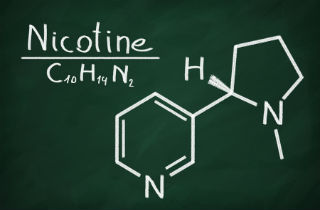Nicotine addiction help
Once formed, nicotine addiction is one of the hardest habits to kick. So what can you do in order to start treating nicotine addiction? How can you help a loved one get nicotine addiction help?
Here, we go over practical methods you can use to help nicotine addiction. You’ll find tips on beating nicotine addiction so you can address the psychological and physical need to smoke as well as start to plan a nicotine withdrawal timeline for yourself. Then, we invite your questions about nicotine addiction treatments at the end.
Getting help for nicotine addiction
Nicotine is a potent alkaloid liquid that naturally occurs in tobacco. But nicotine is both psychologically and physically addictive, and symptoms of nicotine addiction include increased tolerance, withdrawal symptoms upon cessation, and continued use despite negative consequences. Nicotine addiction can be very harmful to one’s physical and mental health. In addiction to becoming physically dependent on nicotine, psychological dependence is also possible. While overdosing is not common among users, you can pass out from physical exhaustion or the body can overheat after smoking too much. In this scenario it is almost rare for one to die, but if nicotine overdose does occur, seek medical assistance immediately.
How to help nicotine addiction
There are several ways to help nicotine addiction. Possible therapies correspond to three phases of treatment: withdrawal, physical stabilization and psychological treatment.
1. Nicotine withdrawal treatment
Many healthcare professionals believe nicotine addiction to be both psychological and physical. Just like other physically addictive drugs, nicotine withdrawal causes a decline in dopamine production and other similar stimulatory neurotransmitters. This is why nicotine withdrawal can be very demanding on the body. When nicotine is no longer in the system the body responds with increased hunger and caloric intake, increased desire for sugary sweets, and constipation or diarrhea. During nicotine replacement therapy, you are provided low doses of nicotine to help ease the withdrawal symptoms…without the toxins found in tobacco smoke
2. Physical stabilization
The physical stabilization during nicotine withdrawal can occur weeks after initial nicotine withdrawal. However, be advised that psychological symptoms of addiction can arise and become more apparent. Long term use of nicotine can cause symptoms such as high blood pressure, clogged blood vessels, cancer of the mouth, throat, or lungs, stomach ulcers, headaches, and depression. Avoid the compulsion to use nicotine again by seeking help from support groups, and addressing the mental compulsion to smoke or obsess over thinking about smoking.
3. Psychological nicotine addiction treatment
Nicotine addiction is often regarded as more physical than it is mental. However, psychological effects of nicotine are very apparent, often causing anxiety, increased cravings for nicotine, drowsiness or sleeping problems, and problems concentrating. Nicotine cessation programs such as counseling services, psychotherapy groups, and stop smoking classes can help you address the mental addiction to nicotine. Joining a support group for help is always an option. Additionally, telephone helplines are usually available throughout the day even on nights and weekends for those in need.
How to help a nicotine addict
If you know someone whose addiction to nicotine is having a negative impact on their life, you can address the issue by intervening. Offer to assist the person in getting help and stick by their side when going through the treatment process. Acknowledging addiction and the harm it causes to their life and the lives around them is important for nicotine addicts. Bring up real life examples and try talking them into getting help through a treatment program. Getting help now can help reduce their risk of life threatening problems in the future.
You can receive help for nicotine addiction by consulting with:
- A family doctor
- A trusted community or religious leader
- Drug addiction psychologists or psychiatrists
- Drug addiction support groups near you
- Stop smoking classes
You can learn more about Nicotine Addiction Treatment programs and help options if you or a loved one are in need of professional medical assistance to quit nicotine once and for all.
Nicotine addiction help and helplines
Receiving the right help for nicotine addiction is crucial during the process of seeking treatment. You can contact 1-800-227-2345 to get connected to the American Cancer Society’s Quitline.
Help with nicotine addiction questions
If you still have questions about getting help for nicotine addiction, please feel free to comment below and we will get back to you promptly. We try to respond to all questions personally.









Related Posts